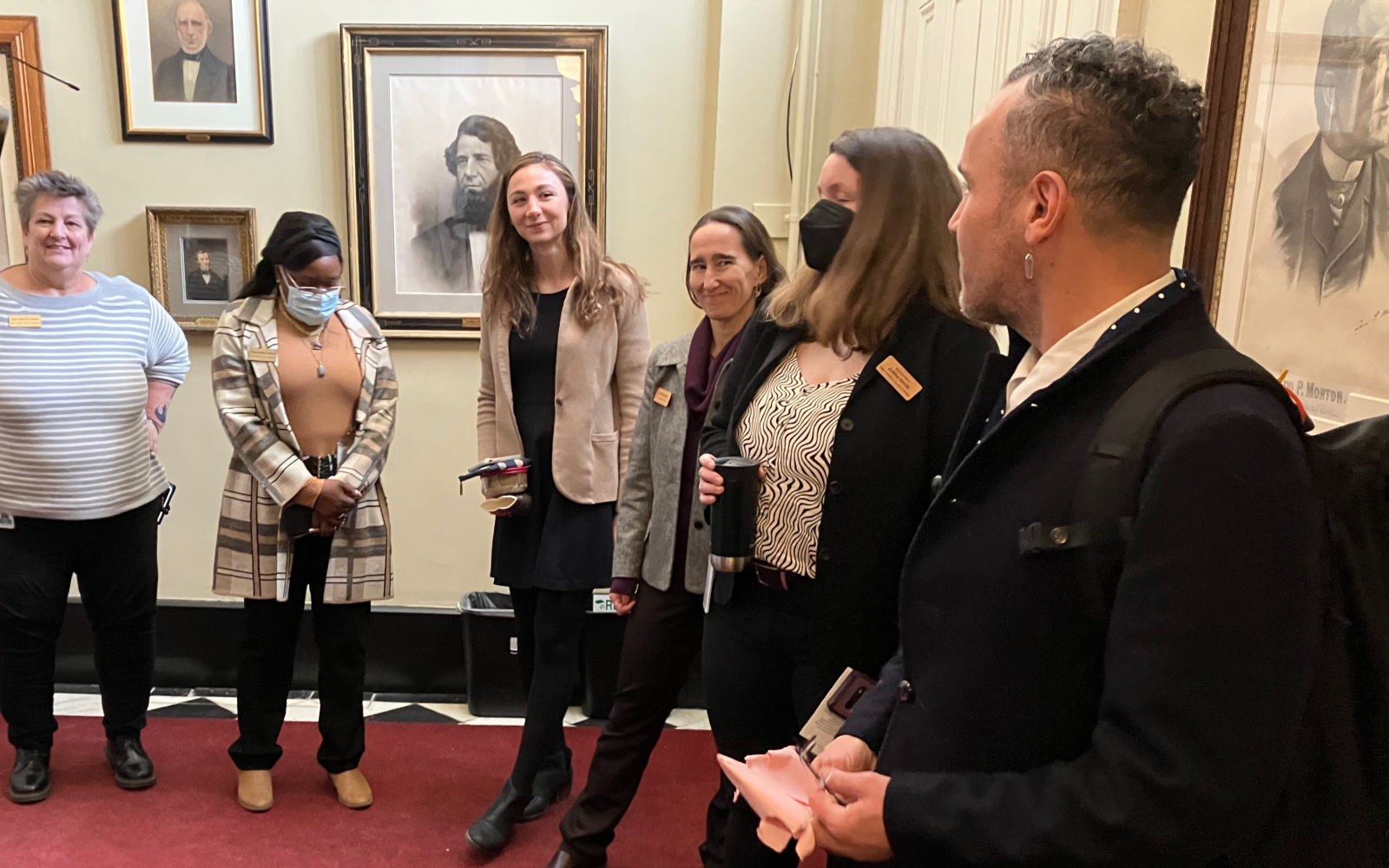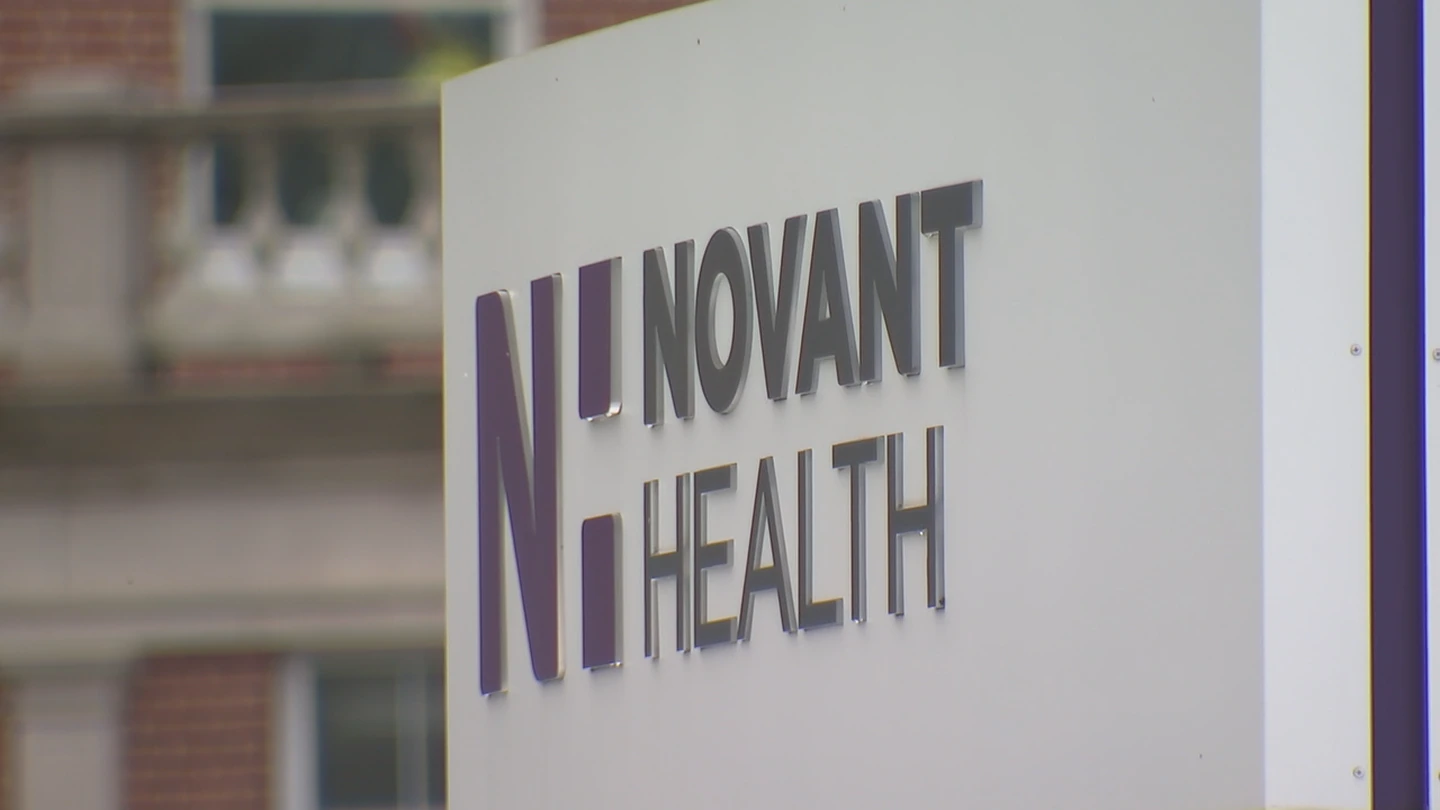[ad_1]


Like all noble quests, the latest push for universal primary care began with a circle of trust, this one among the high-backed red velvet chairs that line the front wall of the House Chamber.
After lunch Tuesday, Rep. Brian Cina, P/D Burlington, suggested to a partial group of the 59 tripartisan co-sponsors of a new bill that they set a collective intention of “health care as a human right” before setting off. After a moment of silence, the legislators all filed out together led by Cina while Lt. Gov. David Zuckerman brought up the rear.
With ceremonial flair, they traversed the Cedar Creek Room, wound their way down the back stairwell and through the cloakroom to their final destination: the small office of the drafting unit of the Office of Legislative Counsel, where bills are turned over to be formally introduced.
In comparison, the state’s journey toward providing universal access to affordable health care has been much less straightforward. In 2011, lawmakers passed Act 48, which created the Green Mountain Care Board and committed that the state would “ensure universal access to and coverage for high-quality, medically necessary health services for all Vermonters.”
Then-Gov. Peter Shumlin ditched the dream of Green Mountain Care, a publicly-financed universal health care program, in December 2014 after a study revealed it would require an 11.5% increase in payroll taxes and 9% increase in income tax.
But Cina and his co-sponsors want their colleagues to revisit the idea, making the case that, despite the Affordable Care Act, the need remains. The bill calls for “incremental implementation of Green Mountain Care” starting with publicly financed primary care in the first year, adding preventative dental and vision in the second, with no deductibles or copayments.
“Right now, one of the biggest challenges for Vermonters is underinsurance,” Cina said. “We have a low uninsured rate, but so many people can’t afford to use their insurance because the deductible is so high and the co-pays.”
Olivia Sharrow, director of Vermont’s Free and Referral Clinics, and Daniel Barlow, director of the People’s Health and Wellness Clinic in Barre, told lawmakers as much in the Senate Health and Welfare committee room Tuesday morning. Sharrow said statewide the nine free clinics, which largely rely on volunteer clinicians, took care of more than 11,500 people last year, which is approximately 1,500 more than in 2021.
In Barre, Barlow said that more than half of his clinic’s patients actually had health insurance — either Medicaid or a private plan — but either could not find a primary care provider or could not afford the out-of-pocket costs.
Cina said he does not expect the bill to move forward as written; even testimony on the bill would be a win in his book, he said. In the meantime, he enjoyed making the pilgrimage with his colleagues. “I don’t think I’ve ever done this before with a bill,” he said.
— Kristen Fountain
IN THE KNOW
“Inappropriately selective, improperly done and deeply misleading.”
Those were the words Jared Duval, a member of the Vermont Climate Council, used Tuesday to describe last week’s testimony from Julie Moore, head of the Agency of Natural Resources, about the potential cost of a proposed clean heat standard. Both testified before lawmakers in the Senate Natural Resources and Energy Committee.
Duval — who also is the executive director of the Energy Action Network, which tracks and analyzes greenhouse gas emissions — said the average household is expected to save a net $7,500 in lifetime savings “as a result of actions taken between now and 2030 to meet the pollution reduction requirements in the thermal sector.”
Moore focused her analysis on the projected upfront costs of things like switching to electric heat pumps and weatherizing homes. She said it could cost $1.2 billion to make the necessary changes and increase the price of fuel by 70 cents per gallon for those who use kerosene, heating oil and propane. While she described her analysis as a product of “back-of-the-envelope math,” she implored lawmakers to analyze costs more carefully.
Duval said it will be impossible to know how the clean heat standard would impact fuel prices until the program is put into place, but that he was confident “that her analysis vastly exaggerates the price effect on fossil fuels.”
“She testified that she was confident she was wrong. I am also confident that she was wrong,” Duval said. “Very wrong.”
— Emma Cotton
On Monday, President Joe Biden announced that the federal government plans to end the emergency declarations for Covid-19 on May 11, a move that could affect Vermonters’ ability to access vaccinations, testing and treatment for the disease.
The national emergency and public health emergency declarations related to Covid have been in place since 2020, allowing a wide variety of regulatory changes on insurance, health systems, telehealth, pharmacies and vaccine authorizations.
At a press conference Tuesday, Gov. Phil Scott said the decision to end the emergency declarations was appropriate since Covid is “just going to become part of our everyday challenges.”
“We’ve gotten through this emergency. The vaccine we have is viable, and it will become — just like we do with the normal flu, I believe — that you’ll have Covid boosters on a yearly basis of some sort,” Scott said.
— Erin Petenko
On Monday, the House Appropriations Committee greenlit the mid-year budget adjustment act, tacking on roughly $86 million in general fund spending, much of which would go toward housing — prompting a finger wag from Gov. Dad at his weekly Statehouse news conference on Tuesday.
Gov. Phil Scott told reporters that he was “very pleased” with the committee’s inclusion of a number of his administration’s priorities in the BAA — but as for additional spending approved by the committee, Scott advised lawmakers to begin tightening the ol’ belt.
“I’m concerned about the $86, $87 million more they added and where that’s going to come from,” Scott said. “Obviously, we have a budget that includes a lot of that money and we just want to make sure that we continue to focus on the fundamentals and what can help us get through the next few years as we see the economy turn downward.”
Asked for his take on the committee’s $21 million proposal to extend the state’s emergency motel housing program through June 30, Scott said, “I don’t know if that’s needed. I think it’s something we should discuss, but I think we have a plan in place right now.” Currently, the program is set to expire at the end of March.
— Sarah Mearhoff
WHAT WE’RE READING
Lawsuit alleges mismanagement, sexual harassment and retaliation at Woodstock Inn (VTDigger)
Vermont state officials want to strengthen school safety procedures (VTDigger)
Vermont lawmakers take up landmark abortion ‘shield law,’ but protections could only go so far (VTDigger)
Burlington’s Amtrak Train Service Is Off to a Strong Start (Seven Days)
Ex-prison superintendent wins suit against Department of Corrections for retaliatory firing (VTDigger)
Sign up for our guide to the global coronavirus outbreak and its impact on Vermont, with latest developments delivered to your inbox.
[ad_2]
Source link


